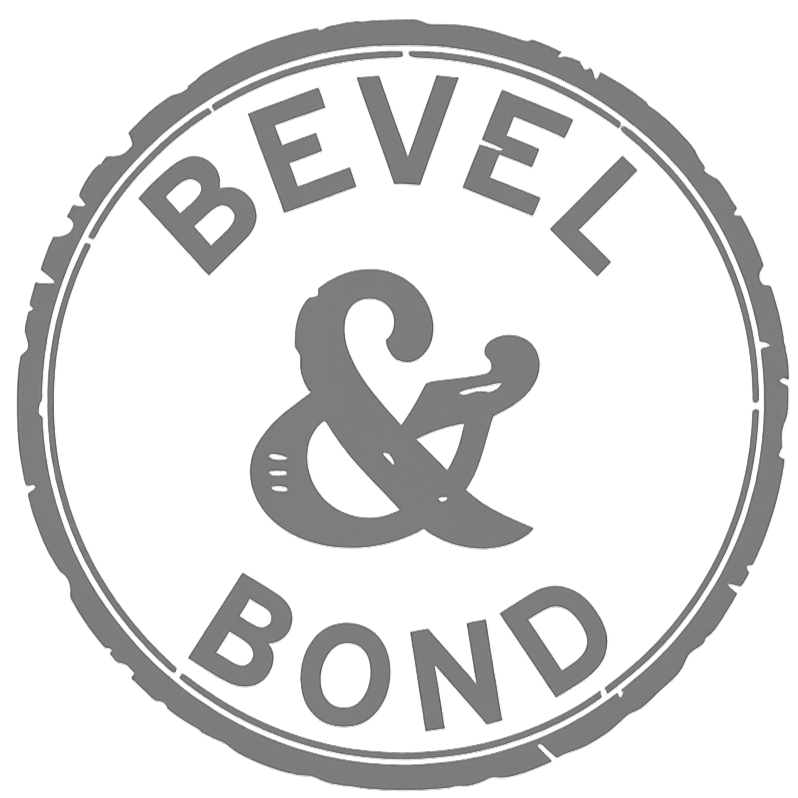Introduction
Not all cutting boards are created equal. When it comes to preparing meats, roasts, or everyday vegetables, the right board makes a huge difference in performance, cleanliness, and presentation.
In this guide, we’ll explain the key differences between carving boards and chopping boards, what makes a carving board truly great, and why a reversible design might be the smartest all-in-one choice for your kitchen.
1. What Is a Carving Board?
A carving board is designed specifically for meats and roasts. It often features:
-
A juice groove to collect drippings.
-
A larger surface area for poultry or brisket.
-
Optional spikes or grips to hold food steady.
Bevel & Bond carving boards are handcrafted from American walnut and maple hardwoods, giving you durability, rich tone, and restaurant-quality presentation right at the table.
2. What Is a Chopping Board?
A chopping board is built for everyday prep work — dicing vegetables, mincing herbs, and slicing bread.
-
Usually flat on both sides.
-
Lighter and easier to maneuver.
-
Ideal for fast daily cooking tasks.
While a carving board is specialized for meats, a chopping board is your dependable workhorse for daily kitchen use.
3. Carving vs. Chopping: Which Do You Need?
|
Feature |
Carving Board |
Chopping Board |
|
Best For |
Meats, roasts, poultry |
Vegetables, fruits, bread |
|
Juice Groove |
Yes |
Usually no |
|
Thickness |
Heavier, thicker |
Medium to light |
|
Presentation |
Ideal for serving |
Everyday prep |
|
Maintenance |
Oil monthly |
Oil monthly |
If you regularly roast or grill meats, a carving board is essential for both function and presentation.
If you mostly prepare vegetables, a chopping board will meet your everyday needs.
Many home chefs own one of each — or choose a reversible board that serves both purposes.
4. The Power of a Reversible Board
A reversible board gives you the best of both worlds:
-
One side with a juice groove for carving meats.
-
The other side completely flat for chopping vegetables.
This design maximizes functionality while minimizing storage needs — one premium board for every task.
Bevel & Bond’s reversible boards are made from premium walnut and maple, combining elegance, utility, and longevity.
5. Features of the Best Carving Boards
When choosing the best carving board, look for:
-
End-grain or edge-grain hardwood for knife-friendly durability.
-
Deep juice grooves to prevent mess.
-
Non-slip feet for safe carving.
-
Reversible design for versatility.
-
Food-safe finish, like Bevel & Bond’s Board Balm, to seal and protect the wood.
These features ensure your board remains beautiful and functional for years of Sunday roasts and family dinners.
6. The Flat Side in Action
The flat side of your reversible board is perfect for daily prep — chopping vegetables, slicing fruit, or cutting bread. It offers a clean surface that’s easy to maintain, so you can transition seamlessly from weekday meals to weekend carving.
Final Thought
Choosing the right cutting surface can completely elevate your cooking experience. A reversible carving board gives you the versatility of two boards in one — style, performance, and durability crafted from premium American hardwood.
👉 Discover Bevel & Bond’s American-Made Carving and Reversible Boards
Get Your Bevel & Bond Cutting Board Today!
Ready to invest in a cutting board that will stand the test of time? Visit our Shop today and choose from our premium selection of handcrafted cutting boards, made with love and care.





